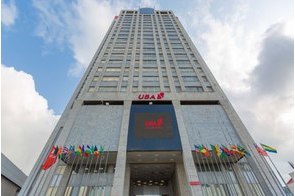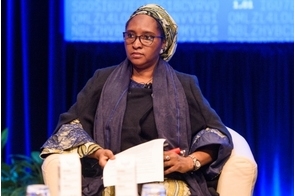Latest News
Fitch revises outlook on credit rating of three big Nigerian banks

News Highlight
- Fitch has revised the outlook on their long-term foreign currency IDRs.
- The three banks are First Bank of Nigeria, United Bank for Africa, and Guaranty Trust Bank.
Fitch, a global ratings agency, has revised the outlook on the long-term foreign currency Issuer Default Ratings (IDRs) of three Nigerian banks from stable to negative. The three banks are First Bank of Nigeria, United Bank for Africa, and Guaranty Trust Bank.
In a ratings alert issued to investors on Thursday, Fitch said, “The Outlooks have been revised to Negative, reflecting Fitch's view of the decreasing financial flexibility of the Nigerian sovereign (BB-/Negative) to support these banks' foreign currency obligations.”
Fitch said fallen crude oil price, which have fallen from $115 per barrel in June 2014 to about $33 per barrel today, have resulted in “negative connotations” for the Nigerian business environment. This can be seen in faltering GDP growth, a significantly weaker naira, and tightening foreign exchange liquidity.
“These coupled with an uncertain policy response are, to varying degrees, taking a toll on the banks' risk profiles,” Fitch said.
Fitch said it revised the outlook on Guaranty Trust Bank because of the bank’s significant exposure to the oil and gas sectors as well as the manufacturing sector (accounting for 17 percent of its loan book). This raises the possibility that the bank’s non-performing loans (NPLs) may spike.
As for FBN Holding Company (which owns First Bank of Nigeria), Fitch said the bank’s larger exposure to the oil and gas sector compared with its peers “could put pressure on its asset quality metrics, profitability and capital ratios.”
Fitch said it was surprised at the decision to revise the outlook on United Bank for Africa (UBA) because of the bank’s relatively modest exposure to the oil and gas sector (which accounts for 20 percent of its loan book). However, Fitch said it was wary of the fact that one-third of UBA’s loan book is in foreign currency.
With a negative IDR – which assesses a bank’s relative vulnerability to default on financial obligations – the above-mentioned Nigerian banks would henceforth find it difficult to raise foreign capital to boost their capital adequacy ratios.
Aside from the above-mentioned three banks, the ratings agency said other Nigerian banks – including Zenith Bank, Access Bank, Diamond Bank, Fidelity Bank, Union Bank, First City Monument Bank, and Wema Bank – retained their stable outlook.
For instance, Fitch said Zenith Bank retained its stable outlook on long-term foreign currency IDR as well as its B+ rating because of the bank’s “intrinsic creditworthiness” as opposed to being reliant on foreign borrowing. Similarly, Access Bank retained its stable outlook on its creditworthiness as well as the fact that the bank has the lowest NPL in the industry and limited exposure to the oil and gas sector (or 4.8 percent of its loan book).
Related News
Latest Blogs
- How Tinubu is ensuring equitable access to public services
- Nigeria’s economic reform faces new threats
- What Ould Tah’s tenure at BADEA reveals about his AfDB candidacy
- Implementation strategy crucial for the success of 12-4 education policy
- A senator’s suspension threatens the right of representation
Most Popular News
- Artificial intelligence can help to reduce youth unemployment in Africa – ...
- Tariffs stir inflation fears in US but offer targeted industry gains ...
- Nigeria records $6.83 billion balance of payments surplus in 2024
- Tinubu appoints new Board Chair, Group CEO for NNPC Limited
- Soaring civil unrest worries companies and insurers, says Allianz
- CBN net reserve hits $23.1 billion, the highest in three years









